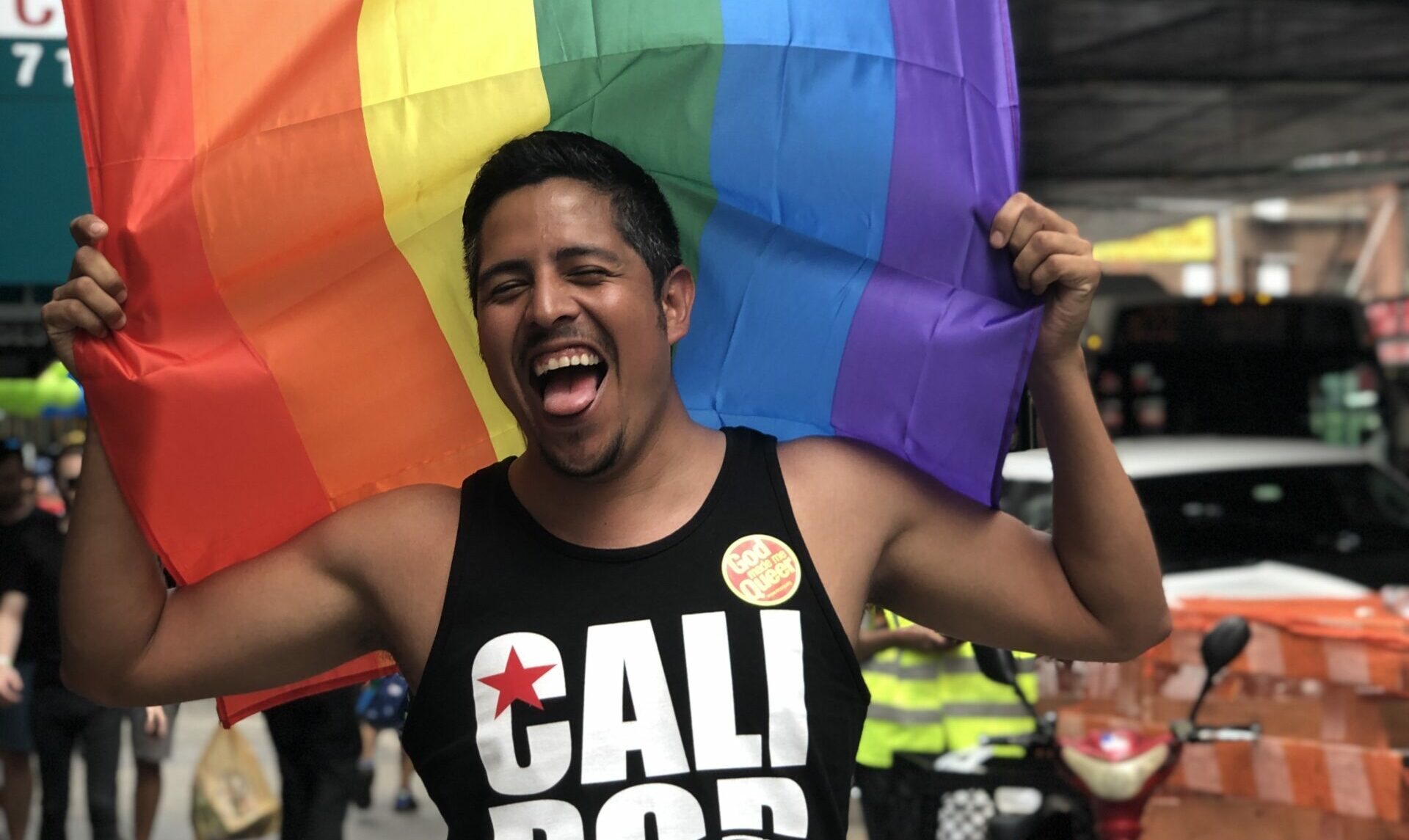A Q&A with Josué Argüelles
Josuë Argüelles is a man of the streets. Born and raised in Southern California as the second oldest of four siblings, Josué’s journey to healthy manhood required navigating two pivotal roads: being a second-generation Mexican-American; and identifying as a queer man. Josué brings these experiences to his role as our director of youth initiatives in his work helping cultivate the next generation of manhood.
We took some time to chat with Josué about the pride in his heritage and his identity.
What did authenticity look like to you as a child?
Authenticity as a child with my family and my community felt authentic to my culture, to my traditions, and to my people. But that changed over time growing up as a second-generation child of immigrant parents living in the United States. Back in Mexico, my parents were raised in the Catholic church but in our time in the U.S., they converted to Jehovah’s Witnesses. In that process the teachings, the practices, the indoctrination of adhering to these very strict standards of who we were and how we should show up in the world created a lot of clash for those authentic parts of myself. I ended up spending much of my childhood and teenage years trying to figure out where I “fit in,” and it became a constant challenge to find the voice within my soul.
When did you decide to come out?
My coming-out process was in stages. In my senior year of high school, I came out to a handful of my friends who I felt safe with: the ones who had an unconditional vibe and love that are meant to be in your life at that specific moment. A year later, I came out to my family over the phone. My younger brother – who was very much socialized within the Man Box – was the first person to call me to reaffirm his love for me. It was one of the greatest bonding moments of my life.
However, the process with my parents wasn’t the best. They didn’t disown me, but I did have to constantly battle their inability to be present and loving during those years. I find beauty in the healing journey they’ve experienced as a result of me living authentically.
How do you balance your experiences as a Latinx and queer man?
My Mexican heritage was my first sense of pride. Even when I moved to San Francisco (like most baby gays in the 90s), I was quickly reminded of the way racism, patriarchy, and xenophobia show up across any community. I was trying to find a place within the queer community, but I experienced a lot of fetishizing over my race and skin color. It led to me feeling alienated pretty early on because the mainstream queer community catered to gay men who were white and physically fit.
By hanging on to my Mexican heritage and with my Latinx folks, I got to reconnect with my Indigenous roots and found people within those spaces that were coming out (or were already out). But it took some years to really find queer like-minded folks who understood the specific experience of queer and Indigenous histories and struggles. Sometimes we lose ourselves when we give up on one identity over the other, which begs the question again: How do we remain authentic despite all these identities that systems tell us don’t belong?
With everything that you’ve been through, what have you learned about how the teachings of the Man Box stifle intersectionality?
As someone who is part of a family where folks were undocumened, you learned to lay low, keep quiet, stay under the radar. At the same time I had these strict religious standards being placed on me that further stifled my authenticity. Looking back, I can clearly state this as an example of how colonialism impacts generations. Through the years, I’ve seen the impact that this displacement of identities, acculturation, and assimilation has had on me and my family. It saddens me.
Make no mistake though, I fully rebelled every opportunity that I could. Sometimes it was just that teenage angst and others I really believed that there was something better for me. I now know that to be aligned with how our ancestors are continuously present and work with us and through us. I call that ancestral resilience.
What’s one piece of advice you would give to someone who is struggling with their own authenticity?
One of the biggest lessons I’ve taken from my life experience is that you have to know and believe that trauma is real and that our bodies carry it. The sooner we realize that, the sooner we can center our own healing and begin to ripple out the impact of our healing with others. Your families, friends, and loved ones may not show up to heal alongside you, and that’s OK. But they will have to respond differently to how you are showing up because of your healing journey. That right there is the seeds we start to plant for others.
Don’t settle for being tolerated or accepted. Surround and embrace people in your life who honor you and celebrate you! My healing journey has been possible because of the people who have uplifted me and loved me genuinely. The more I heal, the more I can love authentically and be loved.
